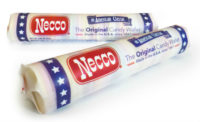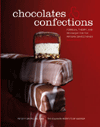Specialty candy retailer Sugarfina, Inc. has filed for Chapter 11 bankruptcy in Delaware, citing shifts in the retail sector, uncertainty in its international partnerships and difficulty in controlling margins as reasons for not being profitable.
In a group of documents filed Sept. 6, Lance Miller, the company’s chief restructuring officer, wrote the California-based company had raised $60 million from investors by early 2018. However, projections revealed the company would need to raise more capital.
Sugarfina explored multiple possibilities, contacting more than 170 potential partners with the goal of obtaining a complete or partial acquisition, equity investments or long-term debt transactions. None of those leads panned out, prompting Sugarfina to pursue filing for bankruptcy.
The company said this bankruptcy filing allows it to complete the “open and competitive process” it launched two months ago to sell its assets. A holding company, Candy Cube Holdings, LLC, has made a “stalking horse” bid of $13 million.
Founded in 2012 by Rosie O’Neill and Josh Resnick, Sugarfina positioned itself as a “candy store for grownups,” offering confections inspired by adult beverages in Millennial-friendly packaging. Its trademarked Candy Cubes, transparent boxes that show off Champagne Bears, Peach Bellini Gummies and other sweets, are designed for gifting and aesthetically-pleasing social media posts.
The company, which counts Goldman Sachs and U2 frontman Bono among its investors, operates 44 candy boutiques, including 11 shop-in-shops in Nordstrom stores. Sugarfina has 335 employees, with nearly three-quarters serving in retail.
Last year, Sugarfina generated $47 million in net sales, with $23.6 million coming from retail operations and almost $12 million coming from wholesale. E-commerce, corporate and international and travel sales make up the remaining revenue.
The company has $26.65 million in debt, with the largest share — nearly $11 million — owed to Goldman Sachs.
Miller noted Sugarfina’s revenues doubled year over year between 2012 and 2017, but they still began to fall in 2016. The company reported $4.8 million in losses that year, followed by $7.3 million in losses in 2017 and $17.9 million in 2018.
“During this period from 2016 through 2018, the Company experienced profitability in its wholesale, corporate and Ecommerce channels; however, retail and international channels remained unprofitable,” Miller wrote. “As a result of this performance, the Company was forced to finance its operations and growth largely with the proceeds from the sale of equity.”
Sugarfina has filed motions to maintain its bank accounts and continue paying its employees, creditors and utility suppliers. In a hearing held Sept. 9, the Delaware bankruptcy court approved beginning the bidding process. Another hearing is set for Sept. 24, with the auction to follow on Oct. 8.









